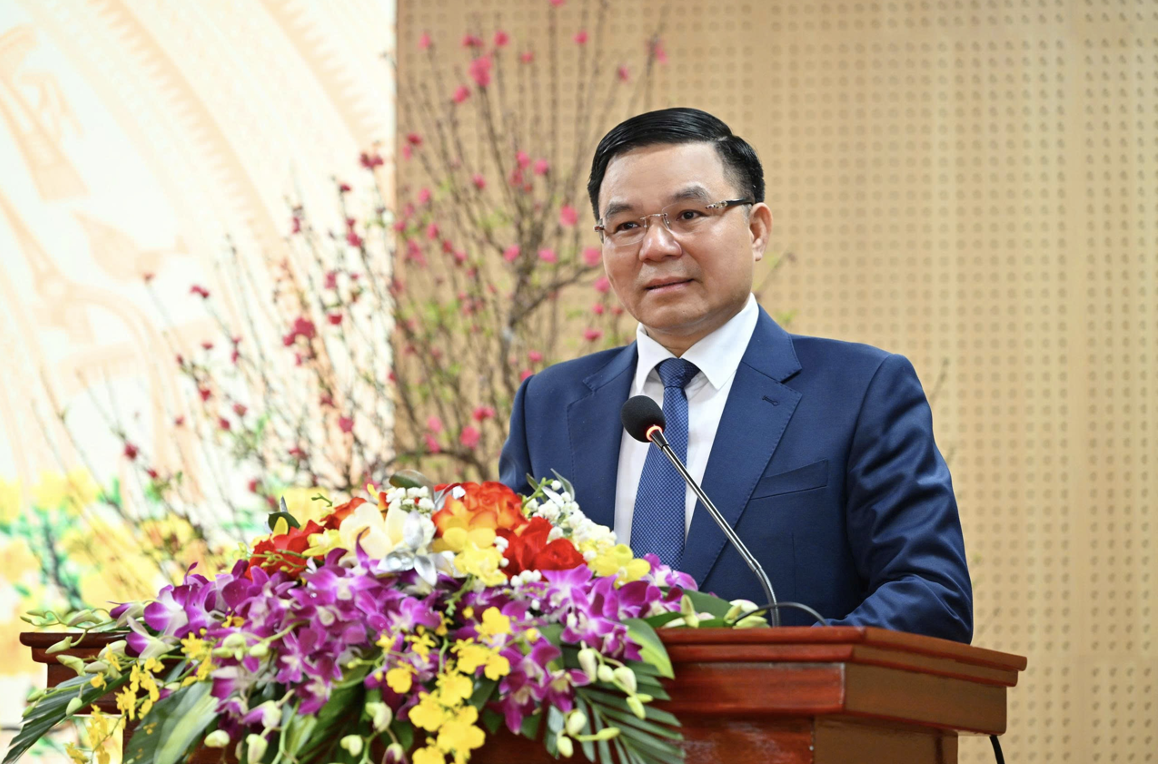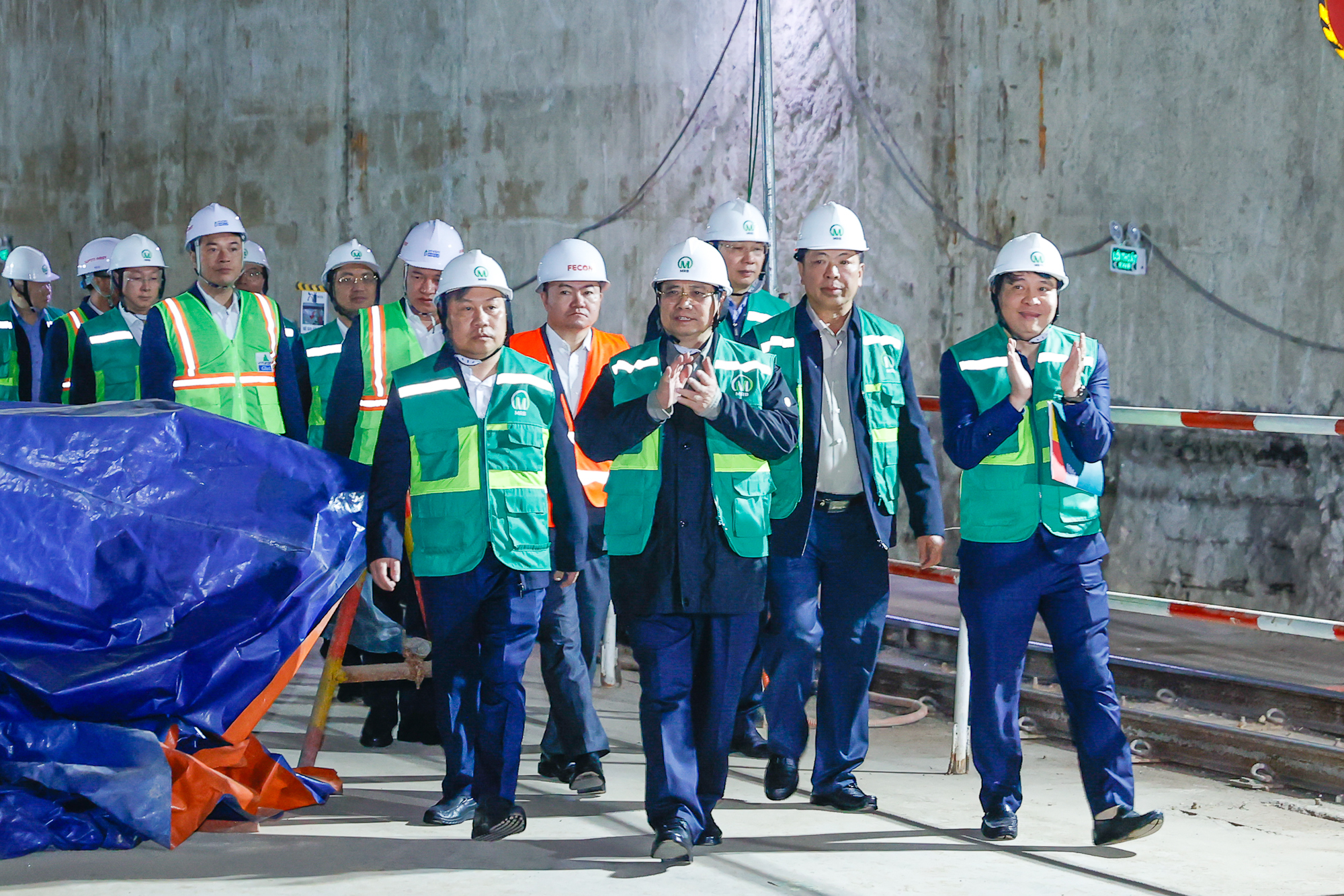
Vietnam’s fruit and vegetable exports to EU triple in four years
19:05 | 23/03/2025 20:40 | 23/02/2026Trade
Institutional reforms unlocking new resources
Resolution 68-NQ/TW, issued on May 4, 2025 by the Politburo on promoting private sector development marks a historic milestone, demonstrating a strong political commitment to positioning the private sector as the primary driver of national economic growth.
With its far-reaching reforms, the Resolution is opening a new chapter for Vietnam’s private sector, aiming to create a transparent, equitable, and enabling business environment. It seeks to shift the role of government from one of control to one of facilitation, heralding a new era for private enterprises.
 |
| Phan Duc Hieu, Standing Member of the National Assembly’s Economic Committee. |
Phan Duc Hieu, Standing Member of the National Assembly’s Economic Committee, noted that the Resolution clearly prioritises institutional reforms to facilitate market entry. "When citizens have ideas and entrepreneurial ambitions, they must be able to implement them without being hindered by administrative procedures — that is the ultimate goal," Hieu stressed.
He further remarked that just as the Doi Moi reforms of 1986 enabled Vietnam to overcome poverty, today, as the nation aspires to reach developed status, a breakthrough in development thinking and policy action is required. Resolution 68 does not favour the private sector alone but rather establishes an equal legal playing field to allow it to fulfil its role and potential.
Accordingly, the Resolution lays a solid foundation for entrepreneurs and private businesses to invest confidently, fostering a spirit of entrepreneurship, innovation, and bold action. "Only when many businesses are born will there be opportunities to select those strong enough to compete regionally and globally," Mr. Hieu emphasised.
Notably, one of the key new elements of Resolution 68 is its focus on enhancing protections for businesses operating in an environment that still presents considerable institutional and market risks.
Hieu highlighted that this is the first time a Party resolution has directly and explicitly addressed this issue, reflecting a fresh mindset in economic policy-making. "If institutional and business risks persist, they will negatively impact entrepreneurial spirit, innovation, and the willingness of businesses to take risks," he observed.
Establishing principles to safeguard the legitimate interests of businesses throughout their operations is, in Hieu’s view, a prerequisite for fostering entrepreneurship and building a transparent, fair, stable, and trustworthy business environment.
Competing fairly on the global stage
Today, the private sector comprises more than 940,000 enterprises and over 5 million household businesses, contributing over 40% of Vietnam's GDP, more than 30% of the country's total budget revenues, and employing 82% of the national workforce. This sector plays a vital role in job creation and driving economic growth.
Significantly, within this sector, a number of entrepreneurs have built businesses with large capital bases, advanced management capabilities, and brands recognised both regionally and globally. Companies such as Vingroup, Sun Group, THACO, Hoa Phat, and FPT are frequently cited as models of modern, nationally significant enterprises.
Associate Professor Dr. Tran Hoang Ngan, National Assembly Deputy from Ho Chi Minh City, remarked that while the private sector has long been a key driver of Vietnam’s economy, the new Resolution sets the strategic goal that by 2030, this sector must become the leading driver of the national economy — a truly transformative shift.
To achieve this objective, Dr. Ngan argued that robust, preferential policies are needed to cultivate private conglomerates capable of leading the economy and competing globally. "Policies must clear the path so that existing enterprises can evolve into large corporations playing a locomotive role," he explained.
"We aim to have millions of private enterprises driving national development. To achieve this, we must unblock policies that enable today’s firms to scale up into major corporations and conglomerates," he added.
Echoing this view, Dau Anh Tuan, Deputy Secretary General of the Vietnam Chamber of Commerce and Industry (VCCI), described Resolution 68 as a "golden opportunity" to advance institutional reforms and create a more enabling environment for private sector growth. However, he stressed that bringing the Resolution to life requires proactive efforts not only from businesses but also from government agencies at both central and local levels.
"Implementation must involve genuine partnership from all levels of government. Each ministry and sector should have its own reform initiatives to actively support businesses," Tuan emphasised.
He further proposed that local authorities should set specific targets for private sector development and even include these targets as performance indicators in evaluating leadership and governance capacity.
From the business community’s perspective, Le Anh Tien, CEO of Vietnam Chatbot Technology Corporation, observed that Resolution 68, combined with Resolution 57-NQ/TW on advancing science, technology, innovation, and national digital transformation, would provide a powerful impetus. He likened this to "a flame dispelling the legal grey areas," paving the way for Vietnamese private enterprises to reach global markets.
According to Tien, Resolution 68 serves as a catalyst for turning emerging technologies from mere ideas into practical applications. "We have integrated blockchain into chatbots, developed a 'Digital Asset Vault' module for managing digital assets, and launched Loyalty Token and NFT Certificate programmes to enhance trust in B2B partnerships," he illustrated.
Tien concluded that a transparent legal framework not only promotes innovation but is also essential to building investor trust and opening the door for Vietnamese tech enterprises to enter international markets.

19:05 | 23/03/2025 20:40 | 23/02/2026Trade

19:05 | 23/03/2025 20:38 | 23/02/2026Trade

19:05 | 23/03/2025 20:30 | 23/02/2026News and Events

19:05 | 23/03/2025 20:29 | 23/02/2026News and Events

19:05 | 23/03/2025 20:14 | 22/02/2026News and Events